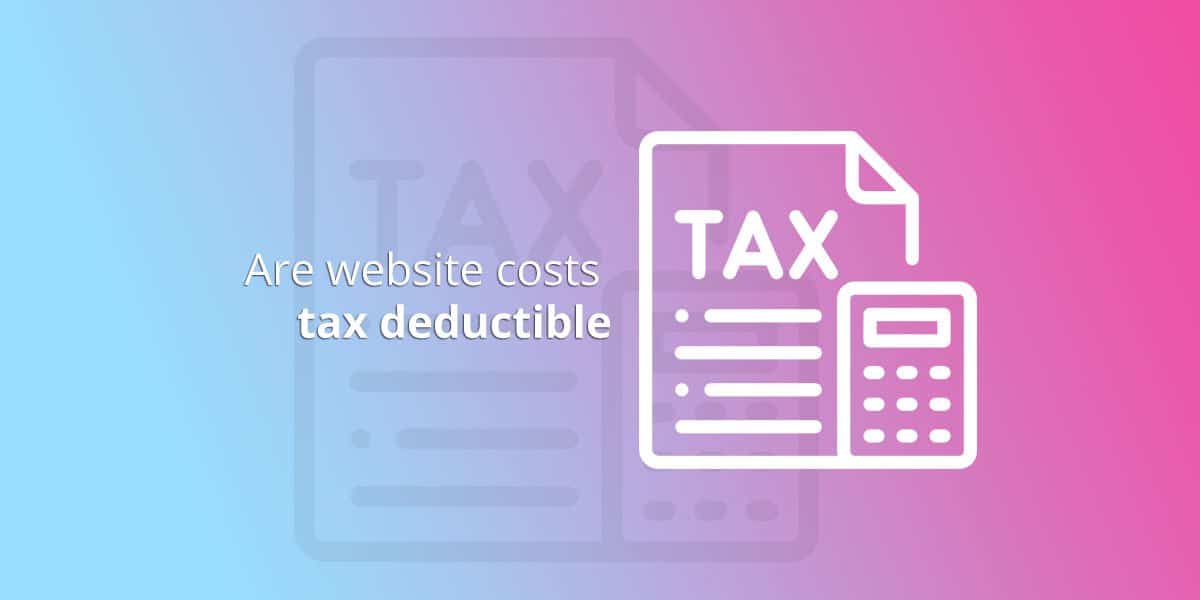 A question we got asked all the time: Are website costs tax deductible? In the realm of tax planning, understanding the implications of website development costs is crucial for businesses aiming to maximize their tax relief. Although we are NOT Tax Experts,This guide sheds some light on the tax treatment of website costs, with a focus on capital allowances and deductions outlined by HMRC.
A question we got asked all the time: Are website costs tax deductible? In the realm of tax planning, understanding the implications of website development costs is crucial for businesses aiming to maximize their tax relief. Although we are NOT Tax Experts,This guide sheds some light on the tax treatment of website costs, with a focus on capital allowances and deductions outlined by HMRC.
https://www.gov.uk/expenses-if-youre-self-employed
Tax Treatment
When it comes to tax treatment, businesses often struggle to differentiate between capital and revenue expenditures. Understanding capital allowances is essential, as it determines how website development costs are categorized for tax purposes. Qualifying for capital allowances can significantly impact a company’s tax relief, affecting both the balance sheet and profit and loss statements.
Understanding Capital Allowances
Incorporating website development costs as capital expenditure allows businesses to claim capital allowances. The useful life of the website, along with its role as a “shop window” for the business, influences the amount of relief that can be claimed. Intangible assets such as software and website costs require specific treatment to ensure accurate accounting and tax reporting.
HMRC Guidelines on Deductions
HMRC provides clear guidelines on how businesses can deduct website development costs for tax purposes. Limited companies, as well as unincorporated businesses, must adhere to these guidelines when determining the tax treatment of website expenses. Understanding the distinction between ongoing website maintenance expenses and costs for developing a replacement website is essential for maximizing tax relief.
How Website Costs Are Treated
The treatment of software and website costs can vary depending on the purpose of development. Expenses related to research and development for a new website differ from costs incurred for a replacement website for your business. Properly categorizing these costs is vital for accurate tax and accounting treatment, ensuring that businesses are able to claim the appropriate relief on their website expenditures.
Accounting Treatment
 When it comes to maximizing tax relief on website development costs, understanding the accounting treatment is crucial. Differentiating between capital and revenue expenditures is key to determining how website costs are categorized for tax purposes. By qualifying for capital allowances, businesses can significantly impact their tax relief, affecting their balance sheet and profit and loss statements.
When it comes to maximizing tax relief on website development costs, understanding the accounting treatment is crucial. Differentiating between capital and revenue expenditures is key to determining how website costs are categorized for tax purposes. By qualifying for capital allowances, businesses can significantly impact their tax relief, affecting their balance sheet and profit and loss statements.
Claiming Tax Deductions for Website Costs
Businesses can claim tax deductions for website costs by incorporating them as capital expenditure. The website’s useful life and its role as a “shop window” are crucial factors that influence the amount of relief that can be claimed. Intangible assets such as software and website costs need specific treatment for accurate accounting and tax reporting.
Exploring Subscription Models for Tax Benefits
Exploring subscription models can offer tax benefits for businesses investing in website development. Subscriptions can be treated as revenue expenditures, impacting the tax deductions available. By structuring website costs through subscription models, businesses can maximize their tax relief and enhance their financial planning strategies.
Utilizing Annual Investment Allowance for Website Development
The Annual Investment Allowance (AIA) can be a valuable tool for businesses embarking on website development projects. By utilizing the AIA, companies can claim tax relief on qualifying capital expenditures, including website development costs. Understanding the AIA’s provisions and limitations is essential for businesses to leverage this tax benefit effectively in their website development endeavors.
Maximizing Tax Benefits
When it comes to maximizing tax benefits, businesses need to consider various strategies to optimize deductions and relief on website development costs. By understanding the tax implications and incorporating website costs into their tax planning strategies, companies can leverage capital allowances and deductions to their advantage.
Optimizing Tax Deduction for Website Costs
 Optimizing tax deduction for website costs involves carefully categorizing these expenses as capital expenditure. By qualifying for capital allowances, businesses can claim deductions based on the useful life of the website and its role as a key asset for the company. Properly accounting for website development costs ensures accurate tax reporting and maximizes the tax relief available.
Optimizing tax deduction for website costs involves carefully categorizing these expenses as capital expenditure. By qualifying for capital allowances, businesses can claim deductions based on the useful life of the website and its role as a key asset for the company. Properly accounting for website development costs ensures accurate tax reporting and maximizes the tax relief available.
Website Development Costs as Capital Expenditure
Treating website development costs as capital expenditure enables businesses to claim capital allowances, providing tax relief over the asset’s useful life. Understanding the distinction between revenue and capital expenditures for website costs is essential for determining the tax treatment and optimizing deductions. By following HMRC guidelines, companies can ensure compliance with tax regulations and maximize their tax benefits.
Incorporating Website Costs into Tax Planning Strategies
Integrating website costs into tax planning strategies allows businesses to align their financial decisions with tax benefits. Whether through subscription models or utilizing the Annual Investment Allowance (AIA), companies can enhance their tax relief on website development projects. By qualifying for capital allowances and understanding the accounting treatment of software and website costs, businesses can effectively optimize their tax positioning and maximize deductions,






